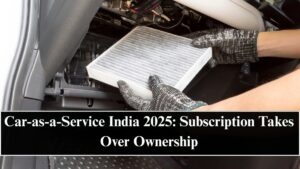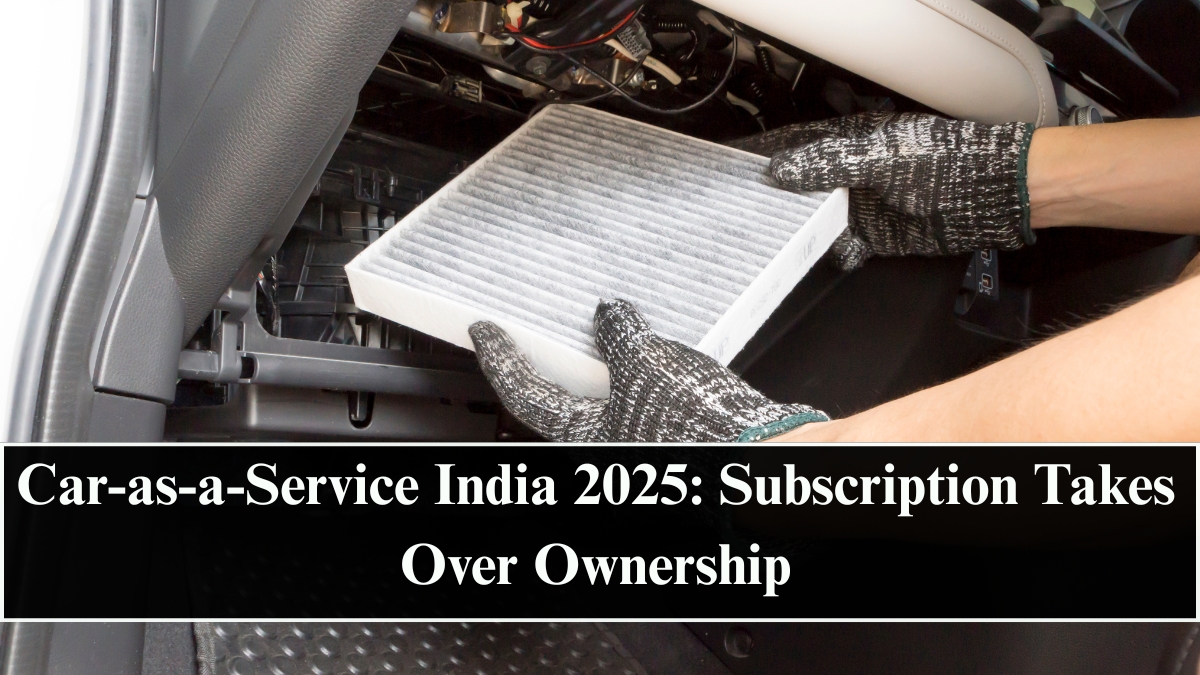A quiet revolution is unfolding in the Indian auto market — Car Subscription Models India 2025 are redefining what it means to “own” a car. As urban lifestyles evolve and flexibility becomes a priority, many drivers are now choosing to subscribe to vehicles rather than purchase them outright. The result is a new wave of mobility-first experiences where access, not ownership, drives value.
In 2025, subscription-based mobility is no longer a niche offering — it’s a mainstream trend powered by digital platforms, flexible contracts, and a young population eager for convenience over commitment.

The Rise of the Car-as-a-Service (CaaS) Model
The concept of Car-as-a-Service (CaaS) enables customers to use a vehicle for a fixed monthly fee that covers everything — insurance, maintenance, and roadside assistance. No down payment, no long-term loan, and no resale headaches.
Platforms like Revv, Quiklyz (Mahindra Finance), Myles, and Zoomcar have popularized this model in India. OEMs like Hyundai, Maruti Suzuki, and Tata Motors have also launched their own in-house subscription programs, targeting professionals and millennials who value freedom over ownership.
This trend reflects a broader global shift from asset ownership to on-demand usage, similar to how streaming services transformed media consumption.
Why Subscription Makes Sense in 2025
The car subscription model India 2025 thrives on three major trends: affordability, flexibility, and digital convenience.
-
Affordability: With vehicle prices rising and loan EMIs becoming heavier, subscription provides access to new cars without upfront investment.
-
Flexibility: Users can swap cars, upgrade, or cancel anytime, making it ideal for people relocating frequently or testing EVs before committing.
-
Digital Experience: End-to-end app-based onboarding, verification, and payments make it seamless and transparent.
For young professionals, startups, and expats, these features align perfectly with modern, mobile lifestyles.
Automakers Embrace Subscription as a Growth Channel
Automakers are reimagining their business models to include recurring revenue streams through subscription programs. For example, Hyundai’s Subscription Program lets users switch between models every few months, while Maruti Suzuki Subscribe partners with Orix and Quiklyz to offer flexible tenure plans from 12 to 48 months.
Tata Motors’ ‘Tata Subscription’ integrates EV options such as Nexon EV and Tiago EV, appealing to environmentally conscious users. This flexibility has made car subscription a powerful new customer acquisition tool and a testbed for emerging EV adoption in urban areas.
The Role of Technology and Data
The success of CaaS India 2025 is underpinned by advanced technology and real-time analytics. Subscription platforms use AI to assess user preferences, driving patterns, and credit risk, allowing for dynamic pricing and personalized offers.
Connected car telematics ensure proper vehicle usage and preventive maintenance, minimizing downtime. Digital contracts, automated billing, and smart key-sharing features have streamlined the user journey — making subscribing to a car as easy as ordering food online.
EVs and Shared Mobility Integration
Electric vehicles are playing a huge role in accelerating the subscription-based ownership revolution. For many consumers, trying an EV through a subscription plan eliminates the hesitation of long-term ownership and battery concerns.
Fleet operators and corporate mobility programs are also leveraging CaaS to maintain electric car fleets for employees or ride-sharing networks. Subscription is bridging the gap between personal and shared mobility, merging convenience with sustainability.
The Road Ahead for CaaS in India
The Indian car subscription market is projected to grow at over 25% CAGR through 2030, driven by urbanization, digital adoption, and changing consumer attitudes. With OEMs, banks, and fintech startups collaborating to build Car-as-a-Service ecosystems, the traditional ownership model is gradually being replaced by flexible mobility access.
In 2025, cars are no longer a lifetime investment — they’re becoming on-demand lifestyle assets. Whether for a few months or a few years, drivers now enjoy total control, convenience, and cost efficiency — without the burden of long-term ownership.
FAQs
What is Car-as-a-Service (CaaS)?
Car-as-a-Service is a flexible mobility model where users pay a monthly fee to use a vehicle without owning it, covering maintenance, insurance, and support.
How do car subscription models differ from leasing?
Leasing involves long-term contracts and higher commitments, while subscriptions allow shorter tenures, easier cancellations, and car swaps on demand.
Which companies offer car subscriptions in India?
Revv, Quiklyz, Zoomcar, Myles, and automakers like Hyundai, Tata, and Maruti Suzuki all offer car subscription services across major cities.
Are car subscription models available for EVs?
Yes. Many subscription providers now offer electric cars like Tata Nexon EV, Tiago EV, and Hyundai Kona EV with short-term plans for easier adoption.
What is the future of car ownership in India?
By 2030, a large share of urban car users are expected to shift toward flexible, digital-first ownership models like subscription and shared mobility.
Click here to know more.
